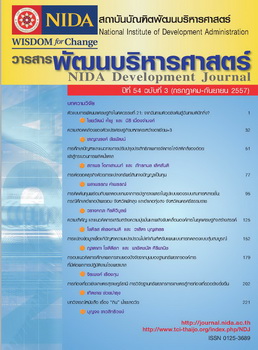Economic Development Model in 21st Century: From Washington Consensus to Beijing Consensus?
DOI:
https://doi.org/10.14456/ndj.2014.32Keywords:
Washington Consensus, Beijing Consensus, Economic Development Model, State Capitalism, Free Market CapitalismAbstract
This article reviews the development of the economic development approaches from the post-World War two to the present and assesses the emerging claims among scholars since the 2008 global economic crisis that the free market capitalism model of development or the Washington Consensus has come to an end and was replaced by the state capitalism model or the Beijing Consensus. The main argument of this article is that although the popularity of the Washington Consensus and the free market capitalism may seem to wane, it does not necessarily spell the demise of the model. In the same vein, albeit the upsurge of popularity in the Beijing Consensus, it is crucial to further develop the solid theoretical foundation and clear policy menu so as to “manufacture” the new consensus. In essence, the adoption of economic development model depends primarily on the socio-economic and political context of each countries at a certain period of time and the consequential effects of the economic development on the society at large.Downloads
How to Cite
Khamchoo, C., & Nuangjamnong, N. (2014). Economic Development Model in 21st Century: From Washington Consensus to Beijing Consensus?. NIDA Development Journal, 54(3), 1–31. https://doi.org/10.14456/ndj.2014.32





